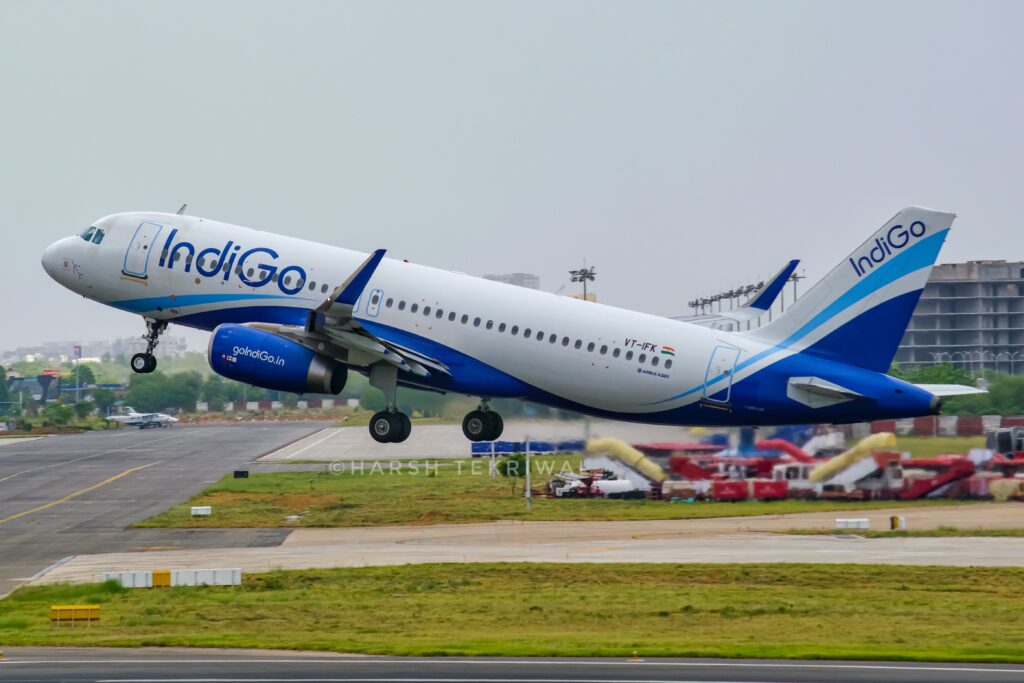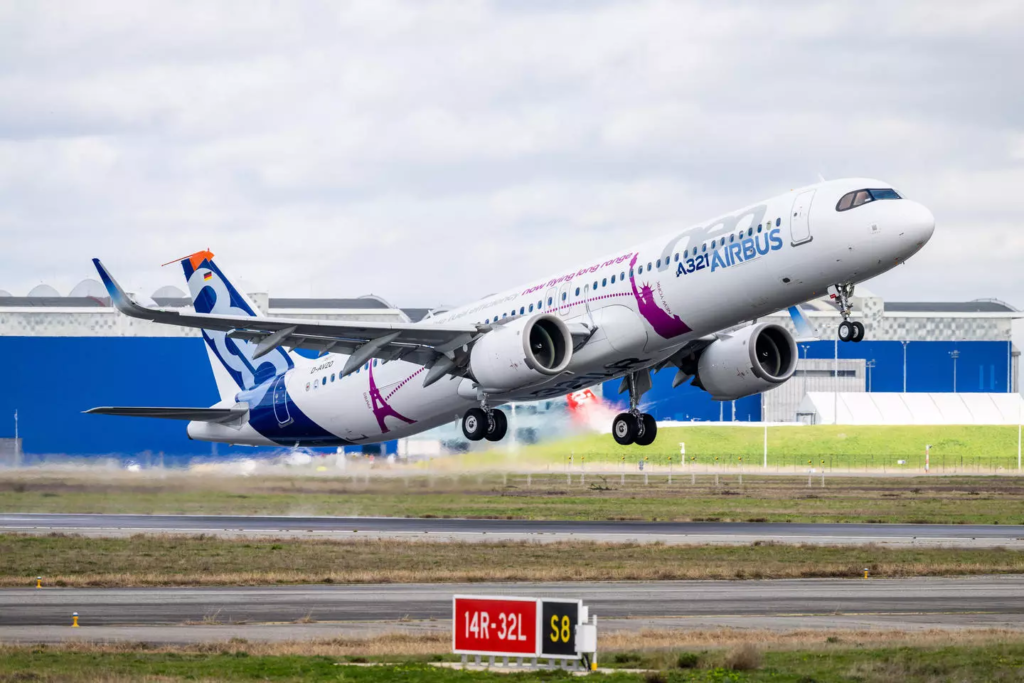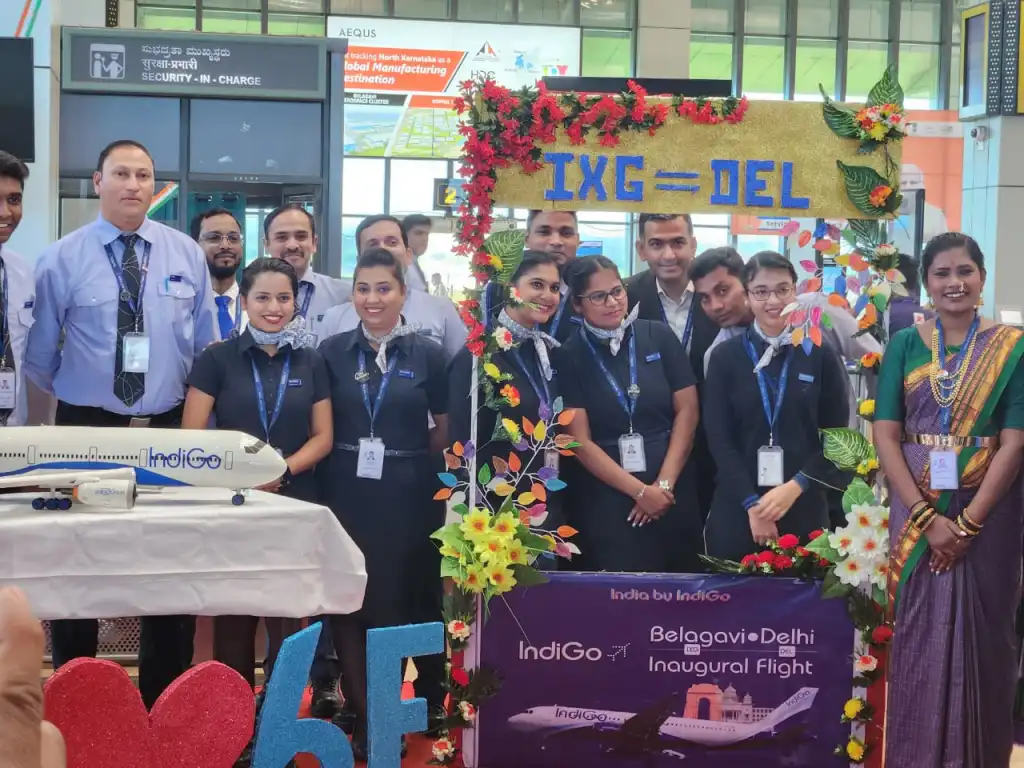GURUGRAM- IndiGo (6E) Airlines, which recently entered into a codeshare agreement with British Airways (BA), is now seeking to extend further its codeshare collaboration with the Australian national carrier, Qantas (QF).
The airline has been actively seeking additional international partners to broaden its reach to destinations worldwide. Currently, it has established codeshare partnerships with various global airlines, including Turkish Airlines, Qatar Airways, Qantas, Virgin Atlantic, KLM, American Airlines, and Air France.

IndiGo Qantas Codeshare and More
Indigo, India’s leading airline in terms of market share, is aiming to double its fleet size by 2030.
The airline has already placed orders for approximately 970 aircraft and is scheduled to receive one new aircraft every week, totaling 50 aircraft, in the coming year. This was revealed by Indigo’s CEO, Pieter Elbers, during a recent media roundtable.
During the last quarter, the airline expanded its network by adding six new destinations. Furthermore, as part of its international expansion strategy, Indigo plans to commence flights to Bali, Indonesia, and Medina, Saudi Arabia, in the upcoming quarter (Q3FY24).
Elbers emphasized that international operations began to materialize in the second quarter (Q2), and the airline will continue to focus on expanding its international routes. Currently, Indigo operates a network of approximately 500 routes, including over 100 international destinations.

A321XLR will be Gamchanger
Indigo is anticipating the arrival of Airbus A321XLRs (extra long-range) aircraft from its extensive order book.
These aircraft are scheduled to start joining the airline’s fleet in late 2024, allowing for non-stop flights with durations of up to 7-8 hours from India to destinations like Athens and Seoul. CEO Pieter Elbers shared this plan for expanding the airline’s international routes.
Looking ahead, Indigo’s focus is not limited to connecting international destinations from major cities but also includes reaching other parts of India, particularly tier-II cities.
Elbers emphasized that the A321XLRs will not only expand the airline’s reach into Asia and Europe but also within India itself, improving connectivity.
In the quarter ending September, Indigo reported a net profit of Rs 189 crore, signifying a 28% year-on-year growth. The airline anticipates a 25% year-on-year growth in the following quarter, although this will be moderated by the substantial growth experienced in the same quarter of the previous year.
Notably, the second quarter of the year was profitable, breaking a five-year trend of traditionally weaker quarters in the airline industry.

Eyes 100 Million Passengers
Indigo is making significant progress towards its goal of carrying 100 million passengers during this fiscal year, according to CEO Pieter Elbers. The airline has already reported a passenger count of over 26 million in the second quarter, and it remains confident in achieving the annual target.
Regarding the issues with Pratt & Whitney engines, Elbers mentioned that ongoing discussions are taking place with Pratt & Whitney to clarify the schedule for engine maintenance to address the powder metal problem.
The exact timing, duration, and potential impact of grounding specific aircraft are not yet known, and Pratt & Whitney will provide a timeline in the coming months.
In order to maintain its capacity commitment for the next quarter, Indigo has entered into damp-lease agreements for 11 additional aircraft, which will commence operations this month.
The airline has also introduced several ATRs (regional transport aircraft) to address imbalances in demand and supply, with plans to incorporate more ATRs in December.
Stay tuned with us. Further, follow us on social media for the latest updates.
Join us on Telegram Group for the Latest Aviation Updates. Subsequently, follow us on Google News.

